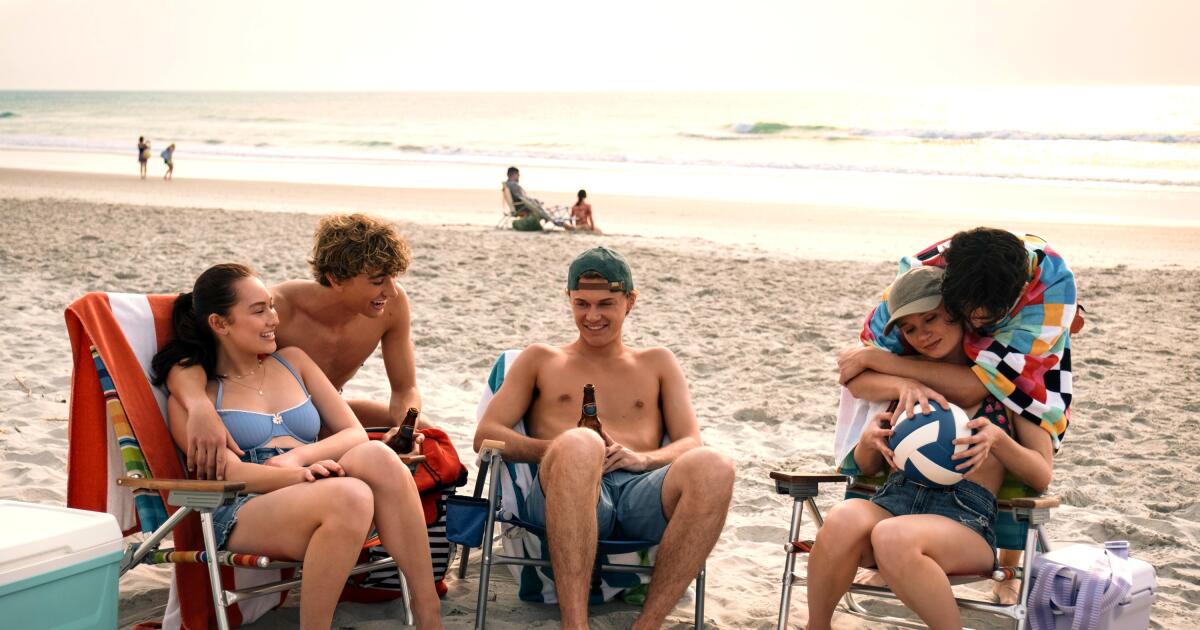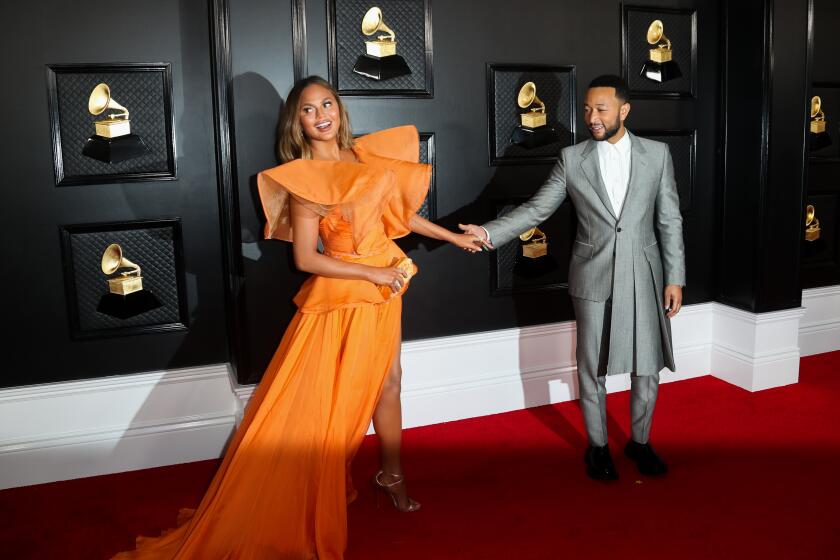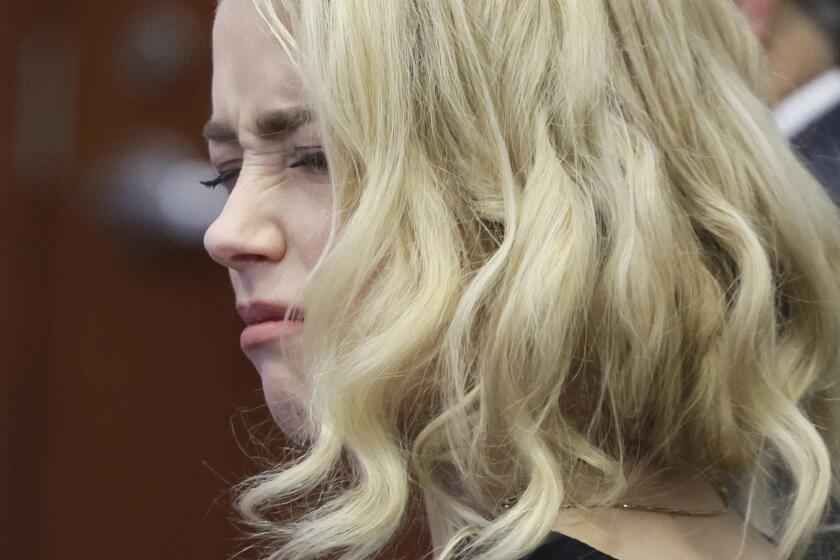
In the past two months, ‘The Summer I Turned Pretty‘ has become the second series to explicitly address the issue of cyberbullying. On their official social media platforms, this Prime Video series issued a public service announcement (PSA) to its audience as the ‘Summer community’: ‘We have a strict policy against bullying and offensive language. Any engagement in the following behaviors will result in a ban.’ Fans were advised to avoid using hate speech or bullying, targeting the cast and crew, and harassing or revealing personal information (doxxing) of members within the community.
Following “Love Island USA” issuing similar advisories, this new warning is being shared. A month ago, host Ariana Madix addressed unacceptable fan behavior during the series’ wrap-up show, “Aftersun.” She cautioned against contacting people’s families, doxxing individuals, and posting rude comments on Islanders’ social media pages. The official accounts of the show then reinforced this message by asking fans to remember that these participants are real people and to promote kindness instead.
In today’s digital landscape, online discussions have turned so harsh that even television shows feel compelled to tackle this issue in their promotional materials. It leaves us bewildered, as we find ourselves torn between cheering and shedding tears. Perhaps a mix of both emotions is appropriate.
As a devoted film enthusiast, I much prefer when TV creators and their social media teams tackle longstanding issues head-on rather than adhering to the conventional approach of the entertainment industry. You know, it’s always disappointing to see them seem surprised and appalled only after an unfortunate actor or contestant has been subjected to a torrent of abusive comments. (And who could forget Kelly Marie Tran’s ordeal!)

Movies
The internet is a double-edged sword.
It’s yet uncertain if these warnings will be repeated or how impactful they’ll be. Research indicates that cyberbullies may refrain from re-posting when their posts are deleted, and perhaps being publicly addressed by shows they admire might make some enthusiasts think twice before expressing anger online.
It’s disheartening that despite years of research into the prevalence and harmful effects of cyberbullying, we seem to be depending on reality TV shows like “Love Island” and “The Summer I Turned Pretty” as our initial approach to addressing behavior that has been proven to lead to suicide, self-harm, and various mental health issues.
Obviously, something is very wrong. With the medium and its message.
As the internet grew more accessible, it was initially hailed as a vast repository of art and knowledge. However, what ultimately captured the masses’ attention was not only its ease of use but also, and sometimes unintentionally, its abundance of adult content.
It’s not surprising, is it, that platforms designed for open discussion, often anonymously, could also become susceptible to human flaws? Or that some passionate fans might act inappropriately when events unfold in their cherished movie or TV world that don’t align with their expectations?
Have you ever been to Dodger Stadium?

Entertainment & Arts
As a devoted movie lover, I’ve been following the latest developments regarding Chrissy Teigen. It seems that some of her past actions have returned to challenge her, as those who were once the target of her online bullying are now sharing their experiences. Here’s what we know so far.
In this way, I hope to convey the essence of the original statement while using a more personal and engaging tone.
Cyberbullying’s underlying instincts and verbal tactics aren’t novel; malicious correspondence, such as poison pen letters, have been a problem since writing was developed – they even led to a significant increase in criminal cases during the early 20th century. Moreover, public figures have long faced the “praise them high and bring them low” dynamic of fans.
The novelty lies in the emerging platforms that foster such activities. While writing malicious letters is unlawful, harmful or toxic comments are essentially a component of modern social media strategies.
Indeed, individuals who share negative or harmful content should acknowledge their accountability for their actions. Regrettably, our society, much like our political landscape, has become increasingly polarized and uncivil. Social media platforms can sometimes facilitate and even amplify this behavior, enabling us to express ourselves in ways we might not when speaking face-to-face with someone. Essentially, it fosters an environment where criticism and commentary can devolve into a form of entertainment or combat.
In retrospect, there was a profoundly sad sense of hope surrounding the impact social media would have on art, especially television. Creators could interact directly with their audience in real-time, fostering stronger fan engagement. A popular video or innovative Twitter campaign could significantly reduce marketing costs for companies. Moreover, celebrities could share candid personal moments, possibly undermining the paparazzi, and express themselves freely through posts, selfies, stories, and statements, thus eliminating interviews where they had less control.
DIY publicity and deeply personal fan engagement — what could go wrong?
DIY publicity and deeply personal fan engagement, that’s what.
Discussions concerning the past era when artists primarily depended on traditional media for exposure often highlight that if readers held negative opinions, they would voice them directly to the publication, which had certain criteria for deciding which letters should become public knowledge. Establishing direct contact with public figures was challenging; even fan mail went through publicity teams and secretaries before reaching its intended recipient.
Now most everyone is accessible on one platform or another and there are very few standards.

Entertainment & Arts
The research company that once employed Amber Heard stated that her recent experience on Twitter was among the most extreme instances of platform manipulation and blatant misuse.
As a strong advocate for these tech giants, I must admit that while they’ve built their empires on the collective efforts of countless users, they seem less inclined towards consumer protection. To clarify, free speech, as we commonly understand it, entails expressing opinions without fear of censorship or reprisal from the government. However, when it comes to these platform owners like Mark Zuckerberg and Elon Musk, they’ve consistently resisted or delayed any calls for substantial regulation.
Rather than relying solely on users themselves, it’s crucial to acknowledge that peer moderation in social media does occur and can be efficient at times. However, this self-regulation is prone to inconsistency and can sometimes escalate into a form of mob rule, which isn’t something we should endorse.
A straightforward suggestion might be to ‘avoid’ looking at comments – either steer clear of comment sections on social media platforms, or consider leaving these platforms entirely. However, this advice seems unrealistic given the significant impact that social media has in our society, especially within the entertainment industry. Here, online presence can lead to career opportunities – for example, YouTube and TikTok personalities shape culture, while the number of Instagram followers can influence whether someone is chosen for a job.
Instead of telling someone to simply “disregard the critics,” it’s far more challenging in practice and often places the blame on the incorrect parties. For instance, advising a woman to just overlook an offensive boss or coworker who makes inappropriate remarks about her looks shifts the accountability away from the offender. A better approach might be to address the issue directly, fostering a healthier and more respectful work environment for everyone involved.
For quite some time now, social media platforms such as Facebook, X, Instagram, TikTok, among others, have evolved beyond being mere venues for sharing travel photos. They serve multiple purposes – disseminating news, influencing politics, promoting businesses, and shaping our culture. It’s essential to remember that these are not public spaces; instead, they belong to private media corporations, much like any other traditional media company, with their operations directed by individual owners.
Absolutely, it’s commendable that shows like “Love Island” and “The Summer I Turned Pretty” are taking measures to combat online hate. However, these efforts merely highlight a larger issue – a multibillion-dollar industry seems to be neglecting the very individuals who contributed to its growth in the first place by not providing adequate protection against abuse.
Read More
- Brawl Stars December 2025 Brawl Talk: Two New Brawlers, Buffie, Vault, New Skins, Game Modes, and more
- Clash Royale Best Boss Bandit Champion decks
- Best Hero Card Decks in Clash Royale
- Call of Duty Mobile: DMZ Recon Guide: Overview, How to Play, Progression, and more
- Clash Royale December 2025: Events, Challenges, Tournaments, and Rewards
- Best Arena 9 Decks in Clast Royale
- Mobile Legends: Bang Bang (MLBB) Sora Guide: Best Build, Emblem and Gameplay Tips
- Clash Royale Best Arena 14 Decks
- Clash Royale Witch Evolution best decks guide
- Brawl Stars December 2025 Brawl Talk: Two New Brawlers, Buffie, Vault, New Skins, Game Modes, and more
2025-07-22 00:01